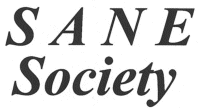
MONEY MATTERS
Report by Pat Conaty in New Economics Magazine, Winter 1998
In his forthcoming book The Future of Money, Bernard Lietaer, former Belgian central banker and designer of the EMU, points out that while in 1970, 90 per cent of international currency was involved in servicing world trade, today only two per cent performs this function.
As much as 98 per cent is simply money leveraging other money in the casino economy of currency hedging and arbitrage. Three developments in the last 30 years have engendered this absurd situation:
- The creation of fiat - or paper or electronic - currency with no commodity reserve backing at all, set off when Nixon abandoned the gold standard for the US dollar in 1971
- The deregulation of financial services markets and the international abandonment of foreign exchange controls by national economies in the 1980s
- The arrival of the internet and 24 hour trading in world currencies and financial derivatives in the 1990s.
While money growth for trade purposes is two or three per cent annually, for speculative proposes it is currently escalating at 25 per cent yearly. &.. As Frederick Soddy observed in the 1920s, a debt-based money system is driven by the practices of fractional reserve banking and compounding interest rates.
Soddy and Lietaer argue that this fiat power could in future be democratically turned on its head by locally- created money for real needs and services. They challenge us to scale up LETS systems from barter to currency. Like community credit unions, unless these micro initiatives are scaled up and run like fully-fledged social businesses, they can do little to reduce social exclusion and to relocalise economic activity.
Local money is no panacea, but clearly is the nexus among many other necessary local financial service reforms including community development banking, ecological tax reform, citizens income and local stock exchanges. Taken together, this is a big campaigning agenda for New Economics.
NOTE: Professor Bernard Lietaer, no longer advocates a single European currency by itself - but agrees with the long standing call by SANE patron James Robertson for a multi-level world currency system.
Comment from Turning Point 2000, newsletter published by James Robertson and Alison Pritchard;
Sept 1998 & January 1999
In 1999 awareness will grow of the effects of a single monetary policy within Euroland, of the euros significance for the UK and the wider world, of progress of the Jubilee 2000 Campaign on Third World Debt, of the acknowledged need to reform the worlds "economic architecture" in response to global financial disorder, and of the continuing spread of local currencies. Public interest in the local, national, European and global workings of money, currencies, debt and finance will rise.
Unless the case for monetary reform is more widely understood and supported, it will remain the preserve of committed amateurs without the support of competent and professional colleagues and back-up, "whilst professional economists are paid to manage an increasingly dysfunctional financial system". He convincingly argues for a new debt-free way of supplying money to the economy. Governments should increase the amount of money they supply, and restrict the power of banks to create money and debt.
The process for reforming or revolutionising the global economic architecture should be characterised by transparency, participation and accountability. Instead, the process in place now is exclusive".. The US Treasury invited the G7 rich countries and "significant" emerging market economies to constitute a new G22 for the purpose. Notably absent are poor countries and the United Nations system."
The extensive popular networks that are intruding into the shadowy world of intergovernmental economic institutions - the WTO, IMF, G7, GATT and World Bank - are making a vision of democratic world governance a matter of practical political action (witness, for example, the movement against the Multilateral Agreement on Investment).
Questions by James Robertson and answers by Bernard Lietaer about The Euro: Single or Common Currencies
Q. Are local currencies relevant to the euro?
Yes, very. Even a single national currency cannot respond flexibly enough to local needs. When people in every locality are compelled to use a single national currency, declining economic success in a locality brings too little money into local circulation to support even purely local activities. Local unemployment then rises, local land and other resources are unused, and local needs are unmet. National monetary policies appropriate for prosperous localities are bound to be wrong for poorer ones. This is why so many local currencies are springing up all over the world. The effects of a single continental currency like the euro are bound to quicken their growth.
Q. We need a multi-level system of co-existing currencies, then?
Yes. That will be in tune with the increasingly global and increasingly local nature of 21st century economic life.
Q. Who will gain and lose? And what should we do?
Those who already enjoy centralised economic and political power will gain from the euro as a single currency. Others will lose. By contrast, evolving a multi-level system of currencies will enlarge economic freedom for all.
|
We will not have any more crashes in our time John Maynard Keynes, 1927 |